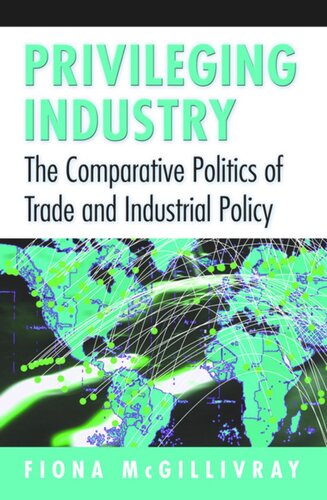

Most ebook files are in PDF format, so you can easily read them using various software such as Foxit Reader or directly on the Google Chrome browser.
Some ebook files are released by publishers in other formats such as .awz, .mobi, .epub, .fb2, etc. You may need to install specific software to read these formats on mobile/PC, such as Calibre.
Please read the tutorial at this link: https://ebookbell.com/faq
We offer FREE conversion to the popular formats you request; however, this may take some time. Therefore, right after payment, please email us, and we will try to provide the service as quickly as possible.
For some exceptional file formats or broken links (if any), please refrain from opening any disputes. Instead, email us first, and we will try to assist within a maximum of 6 hours.
EbookBell Team

0.0
0 reviewsWhy do some industries win substantial protection from the whims of international trade while others do not? Privileging Industry challenges standard approaches to this question in its examination of when governments use trade and industrial policy for political goals. Fiona McGillivray shows why aiding an industry can be a politically efficient way for a government to redistribute resources from one industrial sector to another. Taking a comparative perspective that stands in contrast with the usual focus on U.S. trade politics, she explores, for example, how electoral rules, party strength, and industrial geography affect redistribution politics across countries. How do political institutions and the geographical dispersion of industries interact to determine which industries governments privilege? What tests can assess how governments distribute assistance across industries?
Research has focused on the industries that legislators want to protect, but just as important is identifying those legislators able to deliver trade assistance. Assisting an industry requires both a will and a means. Whether an industry is a good vehicle through which to redistribute income depends on its geographic make-up and the country's electoral system. In turn, the electoral system and party strength affect how legislators' preferences contribute to policy. McGillivray tests these arguments using a tariff-based empirical test and nonstandard dependent variables such as the dispersion of stock prices within fourteen different capital markets, and government influence in the targeting of plant closures within declining industries.